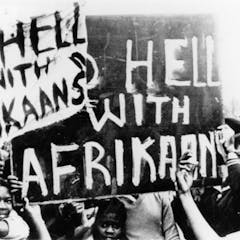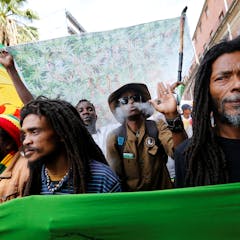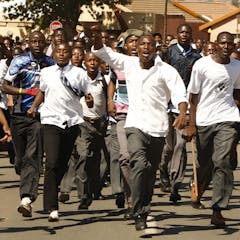
Articles on African politics
Displaying 161 - 180 of 277 articles

Despite the evident weakness of state institutions and accountability of elites, Guinea-Bissau is still a country that ‘works’.

Armed struggle played a subsidiary role in the ANC’s fight against apartheid in South Africa. The tactics that were most decisive in securing freedom were those that didn’t involve organised violence.

The Fragile States Index leaves more questions than it answers. Like similar global surveys, its credibility hinges on reliable data. But how sound are its statistics and their interpretation?

The rise in the number of people fleeing Boko Haram terror calls for urgent amendments to Nigeria’s constitution to provide legal protection to the country’s millions of internally displaced citizens.

Some of the factors behind the riots by ANC supporters in Tshwane are not new. They include gripes within the governing party about its process for choosing mayors and divisions over Jacob Zuma.

The increase in rioting ahead of municipal elections in South Africa, such as that in Pretoria, suggests that the country’s general election in 2019 could be more violent than previous elections.

The brouhaha over South Africa’s upcoming high-stakes municipal elections hides critically important questions about the continued relevance of local government amid growing public disaffection.

Although not a panacea, cutting down the number of deputy ministers would go a long way to helping government get its finances onto a more stable footing.

Forty years after the students uprisings of 1976, South Africa is again in the midst of a political movement led by students.They have changed the tenor and shape of political discussion around education.

Despite protests in South Africa being largely peaceful, municipalities are placing unreasonable restrictions on the right to protest, which sometimes amounts to a veto of that right.

It is exactly forty years since the Soweto uprising in June 1976 where the South African police met the students with brutal force. How much has changed in terms of policing?

For the revolutionary Frantz Fanon it was not enough to celebrate the achievements of decolonisation. It was necessary to educate, to strain at the limits of national freedom and to provoke debate.

Eritrea achieved independence 25 years ago amid high expectations for its future. Today, the country’s youth make up a large portion of the refugees risking their lives for a better future in Europe.

Silencing the guns in Africa by 2020 will require a Herculean effort on the part of the AU Peace and Security Council, whose remit is to prevent, manage and resolve conflicts.

Understandable anger about the excessive inequality in South Africa lies at the heart of the rise of the radical Economic Freedom Fighters. The problem is how the party wants to address these issues.

A key question ahead of local government elections in South Africa is whether the African National Congress will retain control of seven of the country’s eight metropolitan municipalities.

Zimbabwean migrants’ journey to South Africa is fraught with danger. But the emptiness of life in their country makes it imperative to risk life and limb to seek a better life across the river.

US President Barack Obama would do well to refocus America’s interventions in Africa to support peaceful activists fighting for democracy.

Press freedom has changed little in the past decade. If the African Union is to commit to the principles of democracy, it needs to do more to uphold freedom of expression and protects its journalists.

South Africa’s transition to democracy was based on the values of inclusive politics, reconciliation, human rights and constitutionalism. Twenty-two years on, how has the country fared?
